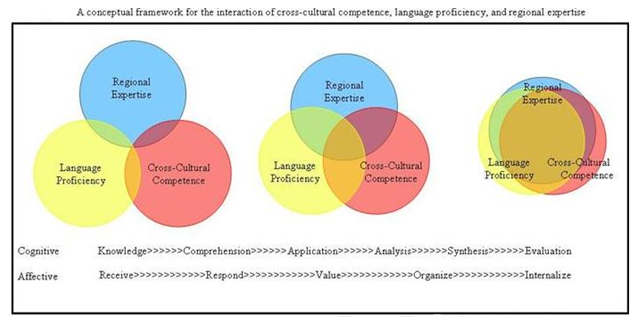The US and the UK Master’s Part / Chapter-wise Dissertation Writing Service

Then You’ve Certainly Reached the Right place
Assignment on Cultural differences between India and Europe
BA 5 International and Strategic Marketing
Assignment - 1
Introduction
In current economic climate, globalization plays a key role. All over the world apart from regional perspective , the idea of a global village is quickly becoming a reality. All around the world, a lot of organizations in the globe are spreading their roots very quickly. Branching out of the business habits and culture of the nations by the organizations makes sense for them to possess an in depth knowledge about the culture and traditions of a nation.
Presently operating from London, Telmarket is a United Kingdom based organization. Provision of consultancy services and marketing training is its specialization. Apart from providing customer care support, it also offers programmes in the areas of strategic market planning. A strong customer base in the United Kingdom has been developed by Telmarket and it has become increasing successful over the last six years. Its Chief executive officer has taken the decision to branch out Telmarket into offshore markets including other parts of Europe and Asia and specifically interested in India due to the success of the organization.
There are a lot of factors which has to be taken into account before any company sets up its operation in another nation. The Cultural diversification which might prevail between two countries is one of the main aspects. Understanding the nation in which it is planning an expansion is very crucial for a company (Darla K. Deardorff, 2009).
In terms of overall growth rate, India is one of the world’s biggest economies and is positioned next to china. After Japan, china and the United States, it is the fourth biggest in terms of PPP. For majority of the organizations it is becoming a favorable destination therefore. The external and internal competition has been enhanced and the economic deformations have been decreased by India’s sluggish paced yet steady reform programmes. A demand for people who possess experience in strategic market planning had been created with an increase in the ventures of entrepreneurship which is due to the emerging Indian middle class sector. The most favorable period other than this could not have been found by Telmarket. The cultural diversifications in the business cultures prevailing between India and Europe is focused by this report which addresses the diversifications which prevails between them. Many foreign firms normally give last preference for understanding the culture of a nation, and they give prime importance to only self-improvement and entrepreneurship and this should not be done by Telmarket. In order to be more successful in India, it should give due importance to cultural intelligence and learning.
The main similarities to European business culture
Europe is commonly called as a self-appellation which is a name given by its inhabitants from early times and India on the other hand is a name given by outsiders and it became accepted by the inhabitants in due course of time. A lot of European influences could still be observed today in various aspects of the Asian society especially in India like business practices, food, driving and the structure of schools. The fact that the people of India was governed by the British about 60 years ago is one of the most imperative and noteworthy point to remember (Bernard S.Cohn. Princeton, 1996). In a business meeting, people of India have a tendency to be ceremonial and hierarchical. Instead of addressing their senior colleagues by the first name, they address them as Sir. Business meeting initiations in Europe seem to have an impact on the business meetings held in India. They have a lot of similarities. Communicating to the senior employees seems to be an appropriate approach in India. Initiating a meeting with some informal conversation such as sports or stock exchange information is considered as the suitable step.
When compared with the United Kingdom in Europe, India is a big nation. Some of the Indians had a western style of education and huge majorities of the business people are experts in English language skill and dexterity. English is the main language in the Indian metropolitan cities like Hyderabad, Bangalore, Chennai, Delhi and Mumbai. When compared to United Kingdom, Romania and other countries in Europe, India also possesses a rather similar legal and business framework. Similar to the business meetings held in Europe, the present generations of business people of India hold business meetings.
Even though it is not usual for business associates to be entertained at home, initial business meetings are most likely to be held in offices and hotels. While looking forward to buy a service or product, the people of India look for cost and innovation factors. The religious sentiments and Indian culture must be taken into considerations by the advertisement (Eli Franco, Karin Preisendanz, 2007).
The major differences to European business culture
Being a product of numerous waves of migration over several years, India is one of the world’s most distinct places in terms of ethnicity and has a distinctive and vibrant culture. Since the people of India like to build relationships with those that they are familiar and who are trustworthy, a relationship of business would take time even though Indians are known for their hospitality. A commitment or business decision which is based on power point presentations, figures and facts are generally not made by the Indians. Unlike in countries like Romania, United Kingdom or France where business decisions are based on figures and facts, it takes time for the Indians to make decisions since they use feelings, faith and intuitions to make significant decisions. Normally, vague replies like I will try’, of if possible’, which shows that they actually say no are used by Indians since they don’t like to come out directly and reply no to a request. Since they are less direct than their European counterparts, they don’t like to be pushed or forced into a decision.
Because of their inherent attentiveness to details, Indians have a tendency to take a longer time to finish a job compared to Europeans. As a consequence to the above, the same job or assignment done in India takes a longer time in India when compared with Europe. The assignment or task would be completed to the satisfaction of the clients once the terms are nevertheless agreed upon. Female visitors are treated with respect and courtesy in India and the same is expected from the other side and apart from that women are relatively fresh entrants to the field of business in India. In contrast to the above, many Indians nevertheless seem to be lacking in punctuality. Punctuality is a major point of disparity among the Indian and European workers. A lot of importance is given by majority of the European workers to punctuality. Even though, punctuality is crucial to everyone, the workers in India are lacking behind in that aspect. They are always in the habit of thinking that serious repercussions are not going to arise due to coming late to a meeting or appointment.
Even though there is point of difference among the Europeans and Indians when it comes in the matter of business card handling, exchanging them are deemed to be appropriate during the initial meeting. In order to enable them to read the card at the time of handing it over, Indians prefer to have the card presented only by using their right hand with the details facing upwards. Even though, a person receiving the card might simply stuff it inside his pockets in the culture prevailing in Europe, increasing attention and due respect to the card is given by Indians and they have a tendency to handle it suitably whenever a card is being received by them which is noteworthy. If such a practice is not followed, they consider it as a mark of disrespect ( I.M. Diakonov, 1985). Even if they are in a high ranking position within an organization, Indians have a tendency to provide respect to elderly people. People entering from any part of Europe into India must ensure that they are soft with the people of India and they must take care in respecting their sentiments. Due to severe competition prevailing in India, business risk is in India is foreseen and therefore pushing boundaries and innovations are normally encouraged. The victory of the software firms in India is one of the key instances for this.
It is considered acceptable to take and gift a bouquet of flowers to the other delegation during a formal business meeting. Deviations due to the familial emergencies might take place in the work aspects as the people of India have a tendency to give the first priority to their families over work (S.K. Chatterjee, 1962). Any organization from Europe which plans to set up operations in India must be aware of the vast diversifications of the work force available in India and specific care must be taken in this regard before setting up a branch in India. Awareness about religious and cultural traditions and customs along with the dates of festivities and important occasions apart from giving high importance to them and being accommodative in nature must be ensured by the organizations (Craig Storti, 2007).
As becoming angry or frustrated could be seen as a sign of losing face and showing disrespect, it is very crucial for any delegation from Europe to be patient negotiators while conducting business meetings. Expectations exist among the people of India to be treated with respect at par with their European counterparts and Indians are known for their sensation to criticism (Srilata Ravi, Mario Rutten, Beng-Lan Goh, 2004). When it comes to Europe and India, there are a lot of diversities in bureaucracy. Huge time consumption and lengthy delays are involved in getting through the Indian bureaucracy in all likelihoods.
In Europe and India, there are certain diversities which prevail in the business societies when it comes to the point of dress code. For the women and men in India, business wear is conservative. If they are in a meeting, men were a dark suit as they are generally instructed to wear formal clothing. Wearing a moderately conservative suit or sari or dress and not exposing too much skin are expected from women. Even though care must be taken to provide forks and spoons, Indians prefer to eat with their hands. As cows are considered as a sacred animal in India, beef should not be on the common menu and therefore dietary restrictions must be followed when setting up a branch in India. Keeping in mind, the diversity of religions in India, serving pork is also to be avoided.
Cultural differences between the various regions of India
It is very crucial to be aware of the vast differences across different regions in India prior to setting up an organization there. A significant role in influencing the shape of business culture is played by several groups across India within which progress and wealth are dispersed to a large extent. In India, Coimbatore, Pune, Hyderabad, Bangalore, Chennai, Mumbai and Delhi are the metropolitan cities where majority of the business are situated in. For effective interaction of regional expertise, language proficiency, and cross cultural competence, a conceptual framework is a required which is depicted in the below figure.
Figure 1


Researchers to mentor-We write your Assignments & Dissertation
With our team of researchers & Statisticians - Tutors India guarantees your grade & acceptance!
Our ServicesSource: Gieryn, 1999
When compared with the business practices which could be found prevailing in rural and semi urban areas, the business practices in these metropolitan are more western in nature. It has been found by many experts that many of the issues faced by people with cross cultures in a specific society requires physical and social inputs and it is imperative for outsiders to be aware of it (Thomas F. Gieryn, 1999). Since the vast majority of their work involves catering to the international customers and clients, also Hi-tech clusters such as Hyderabad and Bangalore have brought about a thoroughly westernized practice of business.
Conclusion
In the way in which the business operations are conducted, both Indian and the European firms use similar methods. In order to understand the dynamics of cost, the potential and size apart from knowing the perfect time to enter the market, it is imperative that a complete market research is undertaken by Telmarket. Branding is another factor which is highly crucial in Indian business. In order to study the cultural diversities between two nations which will eventually help in building personal relationships as well as gaining friends in political circle and developing new contacts in the relevant business sectors, Telmarket must consequently take some time. The business practices of most people in India are deeply impacted by the diverse cultures and traditions in India since India is a deeply cultural nation. In order to make themselves established in India and achieving quick prosperity, Telmarket must therefore make sincere efforts to understand the diversities and work on integrating them.
References
Bernard S.Cohn. Princeton, (1996) Colonialism and Its Forms of Knowledge: The British in India, Princeton University Press, pp. xix, 189.
Craig Storti, (2007), Speaking of India: Bridging the Communication Gap When Working, Intercultural Press, U.S, pp 15-30.
Darla K. Deardorff, (2009), The Sage Handbook of Intercultural Competence, SAGE Publications India Pvt. Ltd., New Delhi, pp 230-240 .
Eli Franco, Karin Preisendanz, (2007), Beyond Orientalism, The work of Wilhelm Halbfass and its impact on Indian and Cross Cultural Studies, published by Motilal Bansarsidass, p 77.
I.M. Diakonov: “On the Original Home of the Speakers of Indo-European”, Journal of Indo-European Studies, 1-2/1985, p.153-154.
S.K. Chatterjee, (1962) Indianism and Indian Synthesis, Calcutta, p.125
Srilata Ravi, Mario Rutten, Beng-Lan Goh, (2004), Asia in Europe, Europe in Asia, Iseas Publications, Singapore, p.180-188
Thomas F. Gieryn, (1999), Cultural boundaries of Science, The University of Chicago Press, Ltd, London, p.

Full Fledged Academic Writing & Editing services
Original and high-standard Content
Plagiarism free document
Fully referenced with high quality peer reviewed journals & textbooks
On-time delivery
Unlimited Revisions
On call /in-person brainstorming session
More From TutorsIndia
Coursework Index Dissertation Index Dissertation Proposal Research Methodologies Literature Review Manuscript DevelopmentREQUEST REMOVAL



